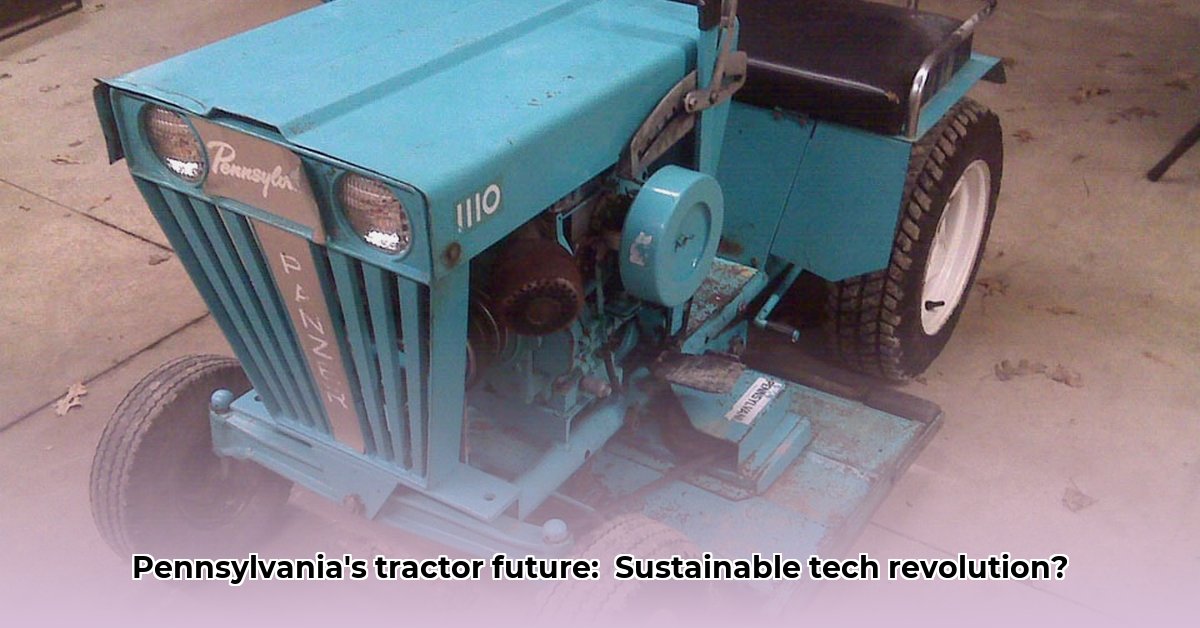
Pennsylvania's agricultural landscape is undergoing a transformation, reflected in the evolving tractor market. This report analyzes current trends, focusing on the prevalence of used equipment and the burgeoning interest in sustainable technologies. We will examine the economic drivers behind these trends, the challenges faced by farmers and stakeholders, and potential strategies for navigating this dynamic market. For detailed tractor valuations, check out this helpful resource: Tractor Value Guide.
The Used Tractor Market: A Cost-Effective Choice
The Pennsylvania tractor market shows a significant reliance on used equipment. Online listings reveal a robust supply of pre-owned tractors, reflecting a cost-conscious approach by many farmers. This preference for used equipment is driven primarily by the lower upfront cost. However, this strategy necessitates increased maintenance and potentially shorter equipment lifespans. This raises critical questions: How long will this preference for used tractors persist? Will technological advancements and economic factors alter this trend?
Sustainable Farming Technologies: Adoption and Challenges
While precise quantitative data on the adoption rate of sustainable farming technologies in Pennsylvania is currently limited, there's a demonstrable increase in interest in these practices. Precision agriculture, utilizing technology for precise control of farming inputs, is gaining traction. Farmers are increasingly motivated to optimize resource use and enhance efficiency. This shift raises crucial questions regarding data collection and analysis: How can we effectively measure the adoption rate of sustainable technologies? What strategies can be employed to gather more comprehensive data? What forms of government support are most effective in encouraging the uptake of these environmentally friendly technologies?
Stakeholder Perspectives and Strategies
The Pennsylvania tractor market involves several key players with distinct short-term and long-term goals:
| Stakeholder | Short-Term Goals | Long-Term Vision |
|---|---|---|
| Pennsylvania Farmers | Minimizing costs; exploring equipment leasing options. | Data-driven decision-making; securing government support for sustainable technology adoption. |
| Equipment Dealers | Maintaining inventory of both used and new equipment; offering lease programs. | Collaborating with sustainable technology providers; offering training on new equipment operation and maintenance. |
| State Agricultural Agencies | Assessing demand for sustainable technologies; developing funding programs. | Establishing necessary infrastructure (e.g., improved internet access) for precision agriculture implementation. |
| Agricultural Research Groups | Evaluating the cost-effectiveness of sustainable farming solutions for Pennsylvania's climate. | Developing region-specific technologies; facilitating farmer adoption of those technologies. |
Navigating the Challenges and Opportunities
The Pennsylvania tractor market presents both challenges and promising opportunities. Addressing these issues is vital for the continued success and sustainability of Pennsylvania agriculture.
| Technology Type | Potential Problems | Potential Solutions |
|---|---|---|
| Precision Farming Tools | High initial investment costs; requiring specialized operator skills. | Government incentives; comprehensive farmer training programs. |
| Reliance on Used Tractors | Increased repair frequency; shorter operational lifespan. | Enhanced maintenance programs; equipment diversification to reduce dependence on any single piece of equipment. |
| New Sustainable Technologies | Uncertain return on investment; technological limitations; rapidly changing market dynamics. | Thorough cost-benefit analyses; phased adoption strategies; collaboration with policymakers. |
The Regulatory Landscape: Shaping the Future
The regulatory environment in Pennsylvania will significantly influence the adoption of new farming technologies. Regulations concerning emissions, water use, and data privacy will directly impact the pace of technological change. Understanding and adapting to this evolving regulatory framework is crucial for all stakeholders.
Conclusion: Embracing a Sustainable Future
Pennsylvania's tractor market is undergoing a period of transition, balancing the practical advantages of used equipment with the growing demand for sustainable technologies. Increased investment in data analysis and sustainable solutions is crucial to effectively manage this shift. The future of Pennsylvania farming depends on a collaborative approach between farmers, equipment dealers, governmental agencies, and research institutions. Continued research, open communication, and strategic policy interventions will be instrumental in navigating this transformation successfully. The potential for a more environmentally friendly and efficient agricultural sector in Pennsylvania is significant, and realizing this potential requires a focused and coordinated effort.